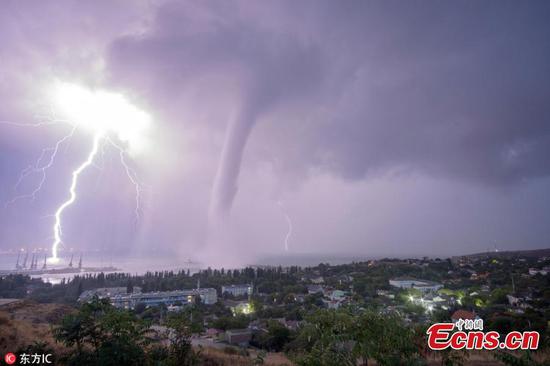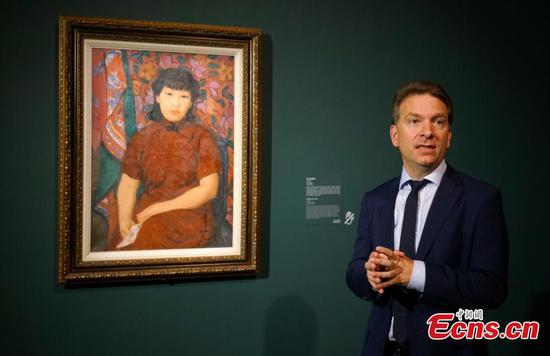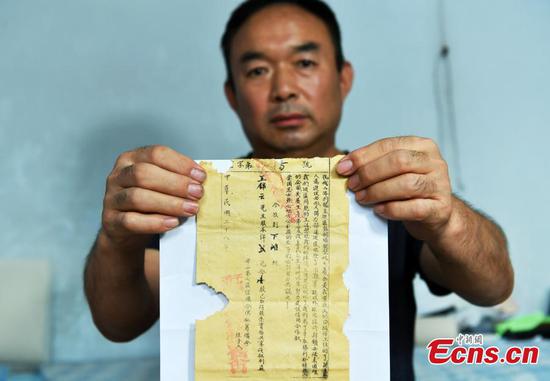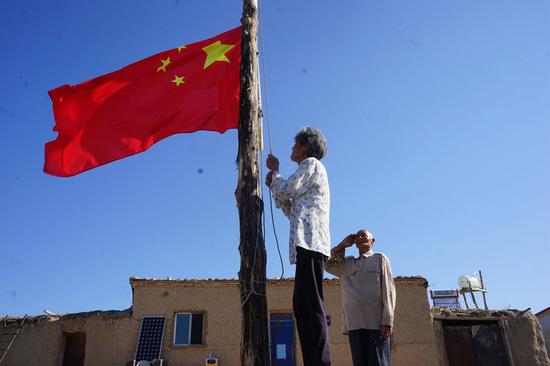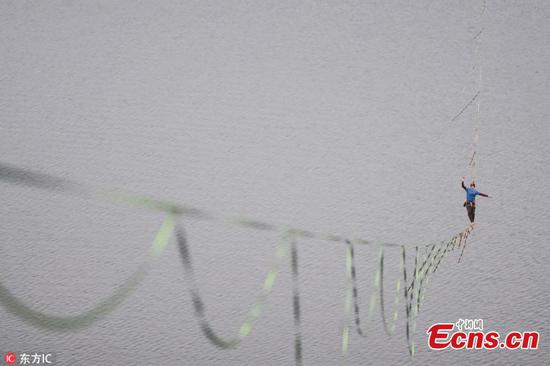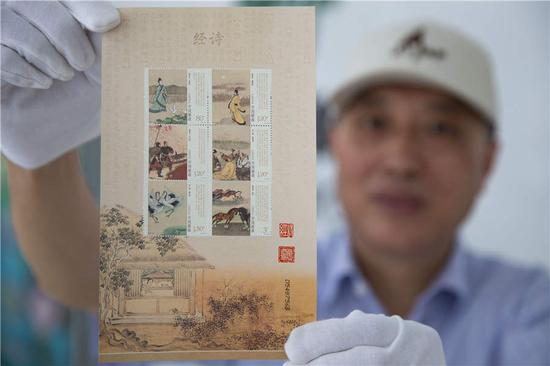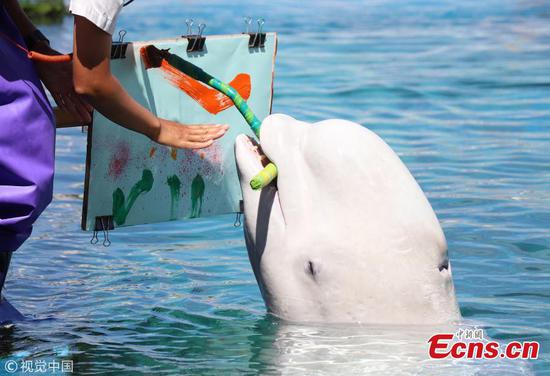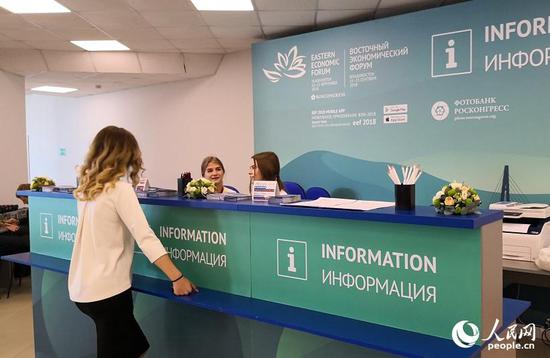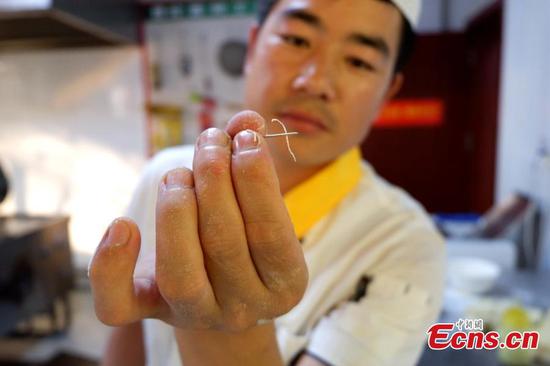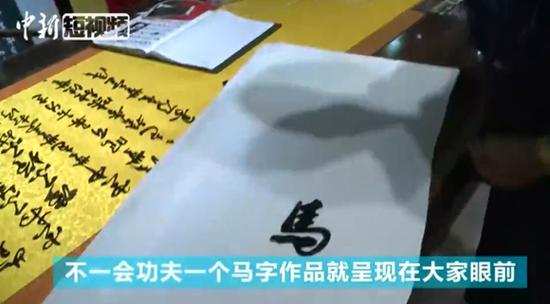Eyes are the windows of the soul. They are also a person's identity, so China is embracing the biometric technology of eye scanning, or iris-recognition.
The iris is the ring between the black pupil and the white sclera on the surface of the human eye.
It is one of the most unique biometric human features and remains unchanged from the age of one, said expert Tan Tieniu, an academician of the Chinese Academy of Sciences (CAS).
"Compared with fingerprint and facial-recognition, iris-recognition is more reliable and stable. For example, fingerprints are prone to wear and facial recognition has difficulty distinguishing twins. The iris does not wear and is stable across a lifetime. Even twins have totally different iris details," Tan said.
STARTING FROM SCRATCH
In January 1998, Tan returned to China from the UK and established an iris-recognition research team in the CAS Institute of Automation. Back then, China lagged behind many countries in this technology.
"Foreign research institutions cannot sell iris image readers to us or share with us iris images for research. We had to start from scratch and develop the technology independently," Tan said.
After years of hard work, Tan's team made great progress in hardware design as well as an identification algorithm. They have published more than 120 papers in international journals and conferences.
Tan said the CASIA iris image database built by his team is currently one of the most widely used in the world, with more than 20,000 research teams from 180 countries applying to use it.
NEW USES
With great progress in basic research, Tan's team began to explore technological transformation and wider application of the technology. The Institute of Automation started a company called IrisKing in late 2006.
Ma Li, Tan's first PhD student in iris-recognition research and CEO of IrisKing, said the technology was first applied in the mining industry.
"To improve safety, a mining company came to us in 2007 for a reliable system to identify authorized miners going underground. They said fingerprints or facial recognition sometimes failed to work because miners' hands and faces were covered with coal dust," Ma said.
The IrisKing system was installed in major mines across the country.
The company also developed iris-recognition products and solutions in many other sectors including banking, public security, government and access control applications.
With the rapid development of artificial intelligence technologies, China has also upgraded iris-recognition technology and a growing number of startups are working in the area.
IrisKing applied its technology to a national platform to battle child-trafficking. More than 400 iris-collection spots have been set up around the country, where parents can voluntarily scan their children's iris and put it in the database. Once a child goes missing or is found, an iris scan will quickly discover his or her identity much faster than DNA identification.
Iris-scanning is a relatively new technology. With increasing application scenarios, the technology is winning public acceptance and the market is maturing, Ma said.
"We will keep improving the technology to offer better user experiences. For example, we have developed iris-recognition-based smart door locks and anti-fatigue driving vehicle systems, which will make daily life more convenient," Ma said.
Iris-recognition usually requires users to cooperate by looking into the camera and is very difficult at more than a few meters. So Tan's team started to develop long-distance iris-recognition technology several years ago and has developed technology that works at up to five meters, which means a simple glance at the machine even from some distance will finish the iris scanning process.
GLOBAL MARKET
According to Transparency Market Research, the global biometrics market will grow to 23.3 billion U.S. dollars in 2020, with the market for iris-recognition technology expected to grow at a rate of 28.6 percent a year to 2.45 billion dollars by 2020.
Ma said IrisKing has already gained a share in the global market, with its products and services exported to the U.S., India, and countries in Africa and the Middle East.
"We have exported our products to the Middle East, where we used our technology in the banking and financial services industry, including iris-recognition-based automated teller machines for quick and secure user authentication," Ma said.
Iris recognition has been widely used in many countries for high security requirements such as homeland security, anti-terrorism, and social security.
India has initiated a national scheme to collect biometric data, including iris data from every citizen. Singapore has launched iris-recognition for ID cards, passports, immigration and border clearance.
"These programs show a growing application of iris recognition, which also provides business opportunities for our company," Ma said.
"We aim to provide world-class iris recognition technology and products for daily applications with improved user experiences and lower costs."









